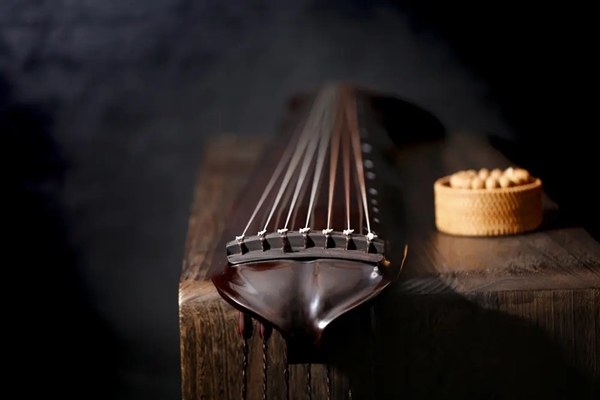With Guqin knot "bosom friend" Vietnamese doctor Ruan Yanjun rooted in Wuhan to become a "violin maker"
Step into Wuhan East Lake Dali village, filar silk continuously harp, sometimes crisp, sometimes vigorous. In an ancient courtyard named "Nantianfang", the host Ruan Yanjun plays the piano and sings while the guests sit around the stove, listening to the piano and drinking tea.

"Guqin is the 'bosom friend' I met in Wuhan." Ruan Yanjun recently told reporters in an interview.
Nguyen Yan Tuan from Quang Tri Province, Vietnam, is a guqin player and master. Eighteen years ago, he came to Central China Normal University to study ancient Chinese literature and became a doctor of literature. After graduation, Ruan Yanjun stayed in Wuhan and taught guqin playing and moking skills.
Guqin, a traditional Chinese musical instrument, has a history of more than 3,000 years. Wuhan is the "hometown of bosom friend". The story of Boya meeting bosom friend when he played the piano happened here.
Learning Chinese Musical Instruments well is no easy task. At first, Ruan Yanjun spent every spare time in the library looking up ancient qin documents, from Biloki Mojo of the Northern Song Dynasty to the Secret Music of Magic, the earliest extent collection of qin tunes in China. He studied and practiced one by one. "Many ancient books are in vertical rows and traditional forms, which are difficult to understand. I have to make great efforts to look up materials and consult teachers to understand their history and culture." Nguyen Yanjun said.
More difficult than reading ancient books, is to recognize the music. A wall in Nguyen Yanjun's home is covered with characters that look like Chinese characters, but are not. He introduced that this is a guqin character reduction score, using a Chinese character or side reduction pen to indicate the number of strings played, emblem position, left and right hand fingering, such as hook, pick, wipe, etc., is unable to replace the staff. As a performer, one must learn by heart the reduced character score.
"Those who are good at the harp are good at it." Having learned to play the instrument, Ruan Yanjun began to master the instrument by himself. The production of guqin follows the ancient method, which requires more than one hundred procedures, such as raw paint, ash scraping, winding and tuning. It takes an average of three years to make a guqin.
"The groove belly is the key step to the guqin. It determines the sound quality of guqin." With one hand holding the guqin panel and the other hand holding the spatula, Ruan Yanjun repeatedly polished the grooves along the wood grain to a suitable thickness. From time to time he tapped the panel with his forefinger, listening for the purity of the low notes and the clarity of the high notes.
As a companion, so a friend. Ruan Yanjun still remembers the first guqin he made by hand many years ago, when he was still in school and had little money, so he had to buy cheap materials online to make the instrument. When the boss learned that this foreign guy was crazy about Chinese Musical Instruments, he graciously sent the materials to him for free. Now, the two have become no talk of "Qin friends."
Rooted in China for 18 years, Ruan Yanjun has visited all the famous mountains and rivers in China and has friends all over the north and south. He and Dai Jianye, his doctoral supervisor, became not only bosom friends, but also father and son. They called each other every day to share their life experiences and study experiences. This Spring Festival, Ruan Yanjun invited his teachers and friends to his home for a small gathering, playing the piano and chatting.
Ruan has also adopted Weiwei, a dog, and Yangyang, a stray cat, which are taken from "As mighty as Mount Tai" and "as mighty as the Ocean is like a river" in Yu Boya's story of "Mountains and Rivers". "In a way, they're my friends, too." "He laughed.
Ruan Yanjun has always had a wish: to bring Guqin back to his hometown. "Music knows no borders, and I plan to build a base for spreading traditional Chinese culture, mainly guqin, in my hometown."
 渝公网安备 50010702504639号
渝公网安备 50010702504639号